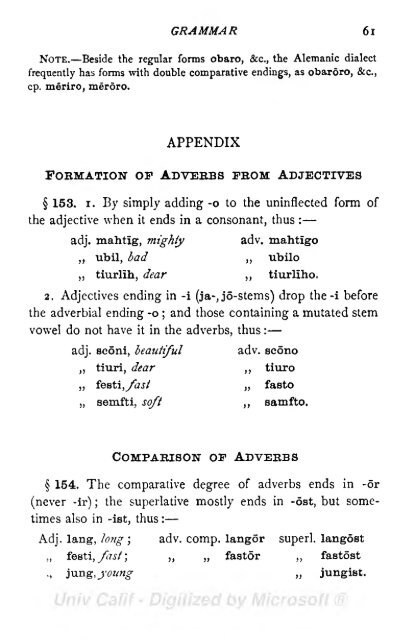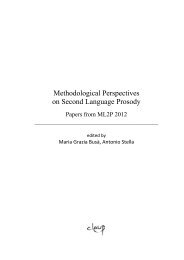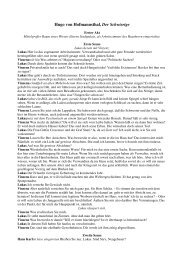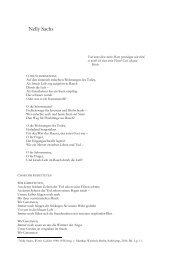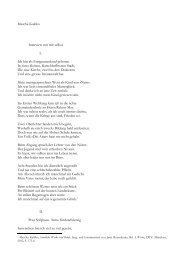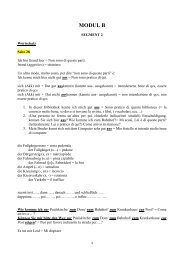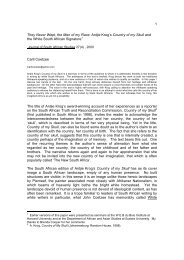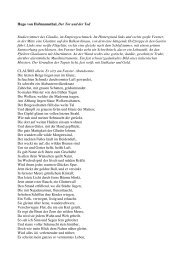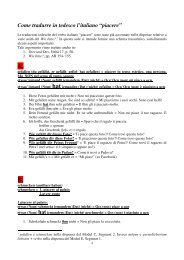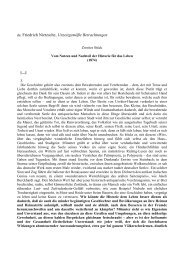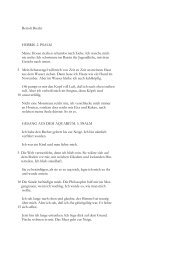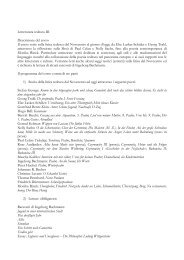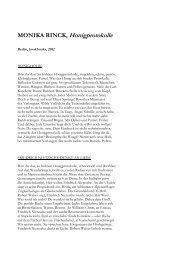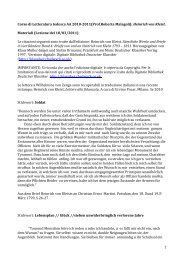Create successful ePaper yourself
Turn your PDF publications into a flip-book with our unique Google optimized e-Paper software.
NOTE.<br />
GRAMMAR 6 1<br />
Beside the regnlar forms obaro, &c., the Alemanic dialect<br />
frequently has forms with doable comparative endings, as obaroro, &c.,<br />
cp. meriro, meroro.<br />
APPENDIX<br />
POEMATION OP ADVEBBS PHOM ADJECTIVES<br />
153. i. By simply adding -o to the uninflected form of<br />
the adjective<br />
when it ends in a consonant, thus :<br />
adj. mahtig, mighty<br />
adv. mahtlgo<br />
,, ubil, bad ubilo<br />
tiurllh, dear<br />
,,<br />
tiurliho.<br />
2. Adjectives ending in -i (ja-, jo-stems) drop the -i before<br />
the adverbial ending -o and those ;<br />
containing a mutated stem<br />
vowel do not have it in the adverbs, thus :<br />
adj. seoni, beautiful<br />
adv. scono<br />
tiuri, dear<br />
,,<br />
tiuro<br />
festi,y#.y/<br />
fasto<br />
semfti, soft ,,<br />
sarufto.<br />
COMPAKISON OP ADVEBBS<br />
154. The comparative degree of adverbs ends in -or<br />
(never -ir) ; the superlative mostly ends in -ost, but sometimes<br />
also in -1st, thus :<br />
Adj. lang, long ; adv. comp. langor superl. langost<br />
festi, yfo/ ;<br />
faster fastest<br />
,, jung, young jungist.


